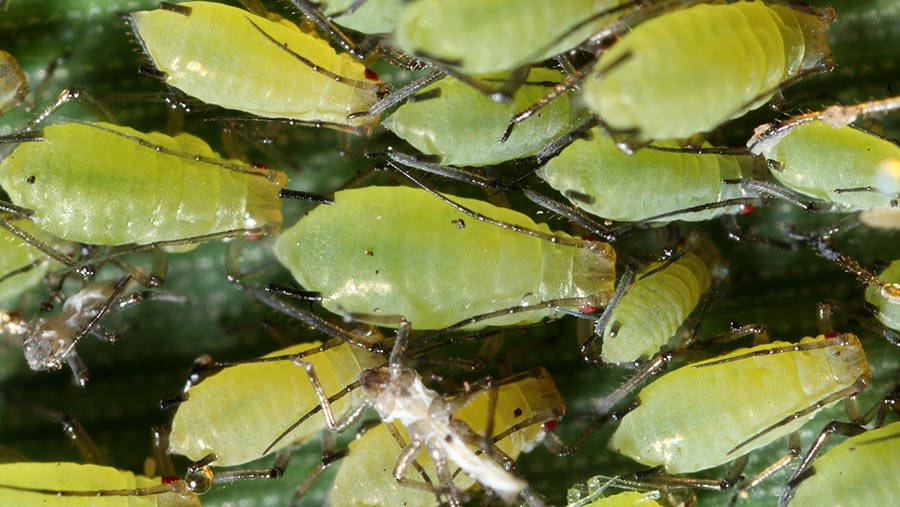Opinion: Insect ‘pain laws’ could hit food production
 © Blackthorn Arable
© Blackthorn Arable A short but potentially significant news item appeared just before Christmas. Scientists at Queen Mary University of London have come to believe that insects might feel pain.
According to the university’s website, researchers appear to feel some disquiet that, although trillions of insects die each year from pesticides – when “the actual cause of death is often paralysis, asphyxiation, or dissolving the internal organs, sometimes over several days” – insects have been largely ignored by animal welfare legislation.
See also: Opinion – right tree in the right place, but what about the weather?
The scientists examined experimental evidence in the light of the eight criteria the government used to decide what creatures should be included in the Animal Welfare (Sentience) Act 2022.
While some insects met six of the criteria and others only two, none failed all of them, so the research team recommend that the capacity for insects to feel pain should be formally recognised in this Act.
In addition, insects should enjoy the same protection from “unnecessary suffering” afforded to other animals under the Animal Welfare Act 2006, which would mean a legal obligation for “humane slaughter” in insect farms and “more humane pesticides” to shield insects from unnecessary suffering.
The researchers also want insects to be protected from “pain, suffering, distress or lasting harm” by being included in the Animals (Scientific Procedures) Act 1986.
Although wouldn’t this tend to hamper somewhat any research into what exactly an insect would consider painless?
Should any farmers reading this be tormented to think of the suffering they have unwittingly caused over the years by zapping insects with insufficiently humane pesticides, I apologise, but it appears the research didn’t take your distress into account.
So, the academics have made their lofty pronouncements, but what next?
Well, of course one immediately feels for vegans, who will now have to seek out food that is not just plant-based, but comes with a guarantee that any insects that perished during its production were sung to their rest by flights of angels.
Although even the promise of “humane pesticides” may not be enough for some.
I was once solemnly told by a young man trying to persuade me of the evils of dairy farming that it is “not possible to kill humanely anything that doesn’t want to die”.
While there are good reasons to be careful about how we control insect pests, worrying about what they feel when they die looks like another example of indulging the refined sensibilities of affluent people who are unlikely ever to be worried about where their next meal is coming from.
A subsistence farmer facing the threat of famine probably won’t be concerned for the welfare of the locusts about to devour his crops.
But what about farmers and growers in this country?
Is it too fanciful to imagine that to come across as thoroughly lovely people, the government may legislate to protect insects through indiscriminate bans on pesticides before there are viable replacements?
Perhaps I shouldn’t worry. I can get along fine without mothballs and fly-spray.
And if yields plummet while we are looking for kind ways to deal with troublesome bugs, we can always import food from less scrupulous countries.

